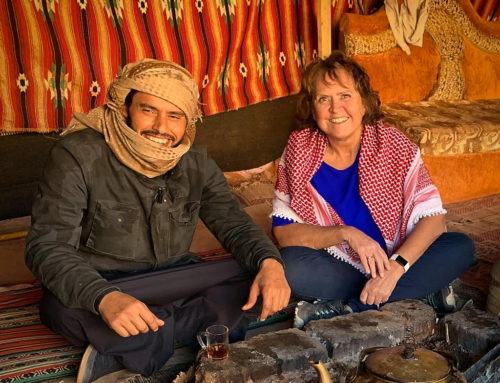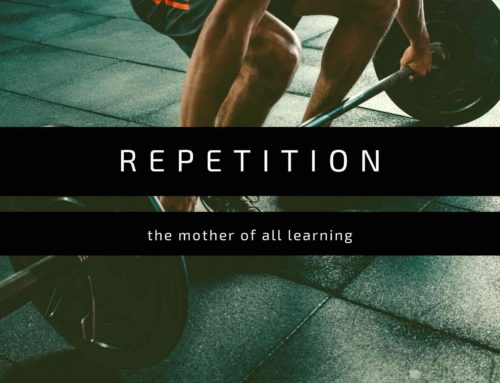Do you ever wish someone would just tell you directly if you’ve embarrassed or offended them?
In Jordan, you will rarely find that someone.
Chances are, they will discuss our behaviors with others, but most would rather not share with you directly if something you have done is considered disrespectful or socially unacceptable.
As a foreigner who has lived in Jordan nearly a decade, I now know that there have been dozens of times my knowledge of local culture was inadequate and, consequently, I did not behave in culturally appropriate ways. It wasn’t out of malice, but rather lack of awareness on my part.
Working in an intercultural development center that emphasizes cultural awareness as an essential aspect of language learning has given ample opportunity to see our own behaviors through the lenses of our Arab staff. Do you still wish someone would directly tell you about behaviors that you, as a foreigner in Jordan should avoid? Here are five to get you started:
1. Public Displays of Affection
Married or unmarried, any form of touchy-feely behaviors tend to make people uncomfortable. Physical contact between men and women is considered inappropriate for unmarried people to witness. If you’ve been to the cinema in the Middle East, perhaps you’ve noticed entire scenes from movies omitted, even if it’s a quick kiss during the film. Whereas most of us consider affection between married couples an admirable thing that testifies to lasting love, in Jordan that is not the message received. Conversely, it is likely to embarrass Arabs around us.
2. Throwing Bread In the Garbage
Both Muslim and Christian Arabs consider bread a “grace from God.” If they see bread on the street they would never step on it. To do so would be equated to stepping on the very grace of God. Instead they would pick it up and place it on a ledge or rock in hopes that a hungry bird would find it. Poverty is widespread in Jordan, so rather than throw bread into the garbage with trash, they place it in a clean bag and hang it on hooks on the side of the dumpster. Last week I saw a father and son pull up to a home and collect a bag of bread that was set out on the wall for the poor. To disrespect bread by wasting, or violating it in any way is simply unheard of in this culture. When foreigners toss their leftovers in the trash, it communicates an unintended message of disregard for God’s provision.
3. Neglecting to Greet
Westerners have “interrupting” high on our list of rude behaviors to avoid in our cultures. Perhaps you’ve noticed this is not a behavior received with such harshness here in the Middle East. Quite the opposite. The very act of failing to greet your coworkers or friends, even if it means interrupting, is considered impolite, as you have violated a primary custom of greeting everyone upon entering a room. I’ve seen it time and time again. A well-meaning foreigner will arrive, quietly slip in, set his or her bag down in a non-disrupting fashion as not to disturb a conversation taking place between others, only to be scolded and questioned as to why he or she would enter without a “Good morning,” or “Peace be upon you.” For Arabs, this gesture trumps all our rules about not interrupting. Enter and greet with flare and volume and others will receive this as the highest act of respect.
4. Immodest Dress
There is a great variety of expression when it comes to clothing in the Middle East. While it is true that there are parts of Amman where seeing someone in a tank top and mini-skirt is no longer unusual, western standards of modesty are hard to accept for the majority of the conservative Muslim population. Imagine you are a man from a conservative family who has mostly only seen his sisters in short sleeves or shorts within a home setting. Spending a long period of time in an office setting with someone who wears a low cut blouse that reveals a bit of her chest or skirt that exposes her thighs can create an anxious situation for both Arab men and women. Expat men are not off the hook. I’ve had Arabs ask me why foreign men do not wear undershirts tucked into their boxers to avoid exposing their backsides when bending over. Additionally, entering a place of business wearing gym shorts will incite lots of negative attention. This attire is appropriate strictly in a gym or sports setting and considered indecent elsewhere.
Shoes are another source of attention that Arabs often point out. Shoes that are worn down, smelly or a flip flop of some kind are also considered inappropriate for a public setting like schools or offices or even malls. Last time I was in the States I was shocked at how many people visited Walmart in their pajamas and sweatsuits. After 9 years of seeing people in Jordan dress up to go to the mall, the contrast stands out as stark. Most westerners are not accustomed to the standard of formal dress public places require.
5. Provocative Behaviors
In Jordan there is a broad spectrum of tolerance for certain behaviors when it comes to male and female roles and interactions in public. You most certainly find segments of the population that hold loosely to societal expectations. For example, a woman eating an ice cream cone or sucker in the presence of men or putting on chapstick in public would be considered vulgar to most, yet permissible to others. Either way, it is good for us to be aware of things we may do in public that may receive negative attention. It may surprise you to know that the female voice is considered very alluring. Humming, singing, laughing or even talking loudly in public can be considered disgraceful. Occasionally, I ask my children to pause and listen in order to point out how low everyone’s voices are, particularly women. Next time you are in a public setting, pause to notice how others are behaving.
Physically touching members of the opposite sex, single or married, however innocently can also cause Arabs discomfort. Many times I’ve seen female employees embarrassed or uncomfortable because a male client tried to shake their hand, pat them on the leg or back or even put their arm around them in a gesture of friendship. It is equally shocking to them to see westerners of the opposite gender high five one another or hug.
Is this list by any means exhaustive? No. I haven’t included draining cans of tuna down the sink instead of in the trash or neglecting to offer your food to others (even the only sandwich you have, knowing they won’t take you up on it). This is just a short list of things I wish I knew when I first moved to Jordan. What could you add that you’ve discovered?
The longer I’m here, the more is shared with me; that is, if I’ve shown an eagerness to learn from those around me. Do I go through my day living and working with Arabs while never offending them? Of course not. I still operate according to the cultural scripts I’ve been raised with from time to time. Still, I believe that part of choosing to live in someone else’s world is choosing to have more awareness of societal expectations of proper behavior. Having the humility to adapt our behaviors, in order to respect others in their environment is key to being invited into deeper and deeper belonging in the Arab world, which is well worth the inconvenience of adjusting our norms.





